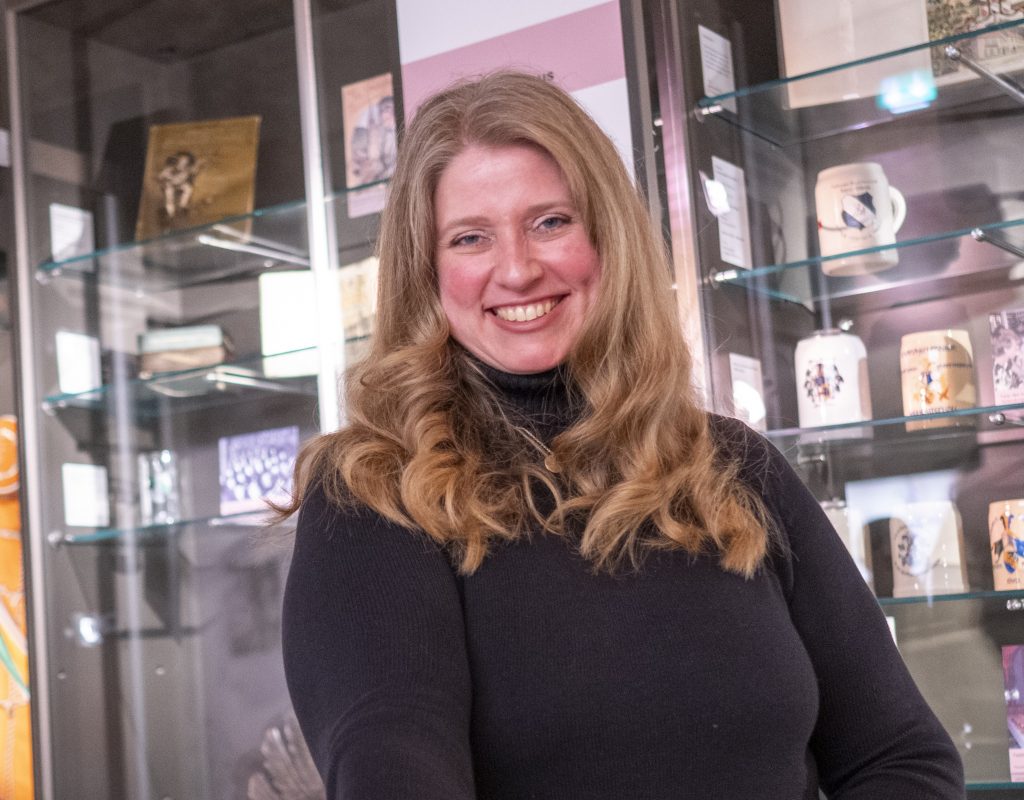How heavy was the first sceptre from the University of Freiburg? How does the fabric of former professors’ gowns feel? Can you feel the age of various bricks? Normally, such questions remain unanswered in the museum, as the valuable exhibits are safely stored in display cases or labelled with “Do not touch!” signs to protect them. To make the history of the University of Freiburg accessible to more people, Sabine Brandenburg is breaking down this barrier. She has been offering guided tours for blind and visually impaired people at the Uniseum since autumn 2022.
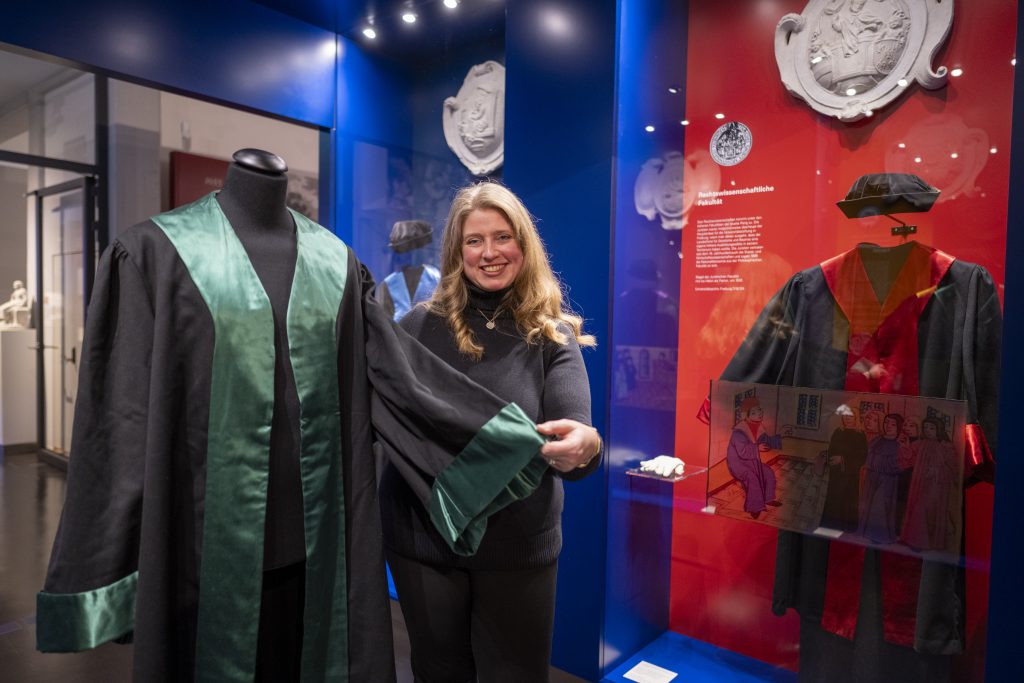
At the Uniseum, blind and visually impaired people can touch the fabric of a gown worn by professors at the University of Freiburg at the beginning of the 20th century. Photo: Patrick Seeger
Sabine Brandenburg came up with the idea for this new tour format during an internship at the Uniseum, which was part of her master’s degree in art history. It was the year 2020, the first year of the pandemic when the museums were closed and Brandenburg had time to get creative. “My stepson has been visually impaired for a few years,” she explains. “He used to love going to museums, but then he began to think It’s not for me. So I had a look around the Uniseum and realized it was perfectly possible to make the exhibition accessible to visually impaired people.” The ideas were put into practice during an internship in 2022, when Brandenburg worked with the then Director of the Uniseum, Prof. Dr Dieter Speck, to dig in the depot for objects from all eras that were suitable for touching and feeling. She familiarised herself with museum education and researched international approaches. Finally, she develops a tour of selected stations in the Uniseum. She describes some of the pictures and artefacts, some of which can be touched with gloves. The tour also includes a visit to the cellar. The uneven floor made of pebbles from the Dreisam river in Freiburg, the muffled rattling of the tram and the echo of voices in the vaults convey a sense of the age of this part of the University. For her concept idea, Sabine Brandenburg sought feedback from Mischa Knebel, the managing director of the Blinden- und Sehbehindertenvereins Südbaden (South Baden Association for the Blind and Visually Impaired). Knebel is blind himself and is the first person to be shown around the Uniseum by Brandenburg. “It was a really nice moment when he said to me afterwards: ‘You’re ready, get started’!”
More University history at your fingertips
Since then, Brandenburg has already received positive feedback from many other visitors. Some want to come back and ask if she has any more exhibits to touch. At the opening of the Academic Year 2023/2024, Brandenburg received the University of Freiburg’s special prize for outstanding student commitment, endowed with 500 euros. She would like to invest this prize money in a 3D print of the Rector’s Chain and a tactile floor plan of the building complex, among other things, which will then be integrated into her guided tour of the Uniseum. She also plans to offer guided tours for the visually impaired through other historical parts of the University, such as the Collegiate Building I in the city centre or the city’s historic dungeon. She is training her Uniseum colleagues in order to consolidate and expand the offer.
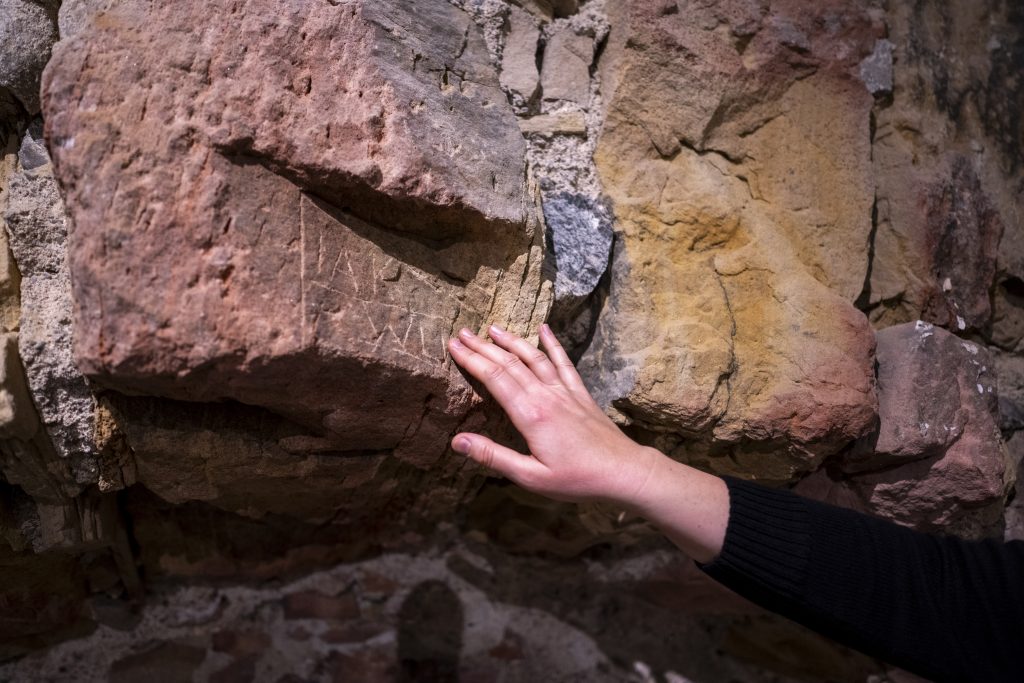
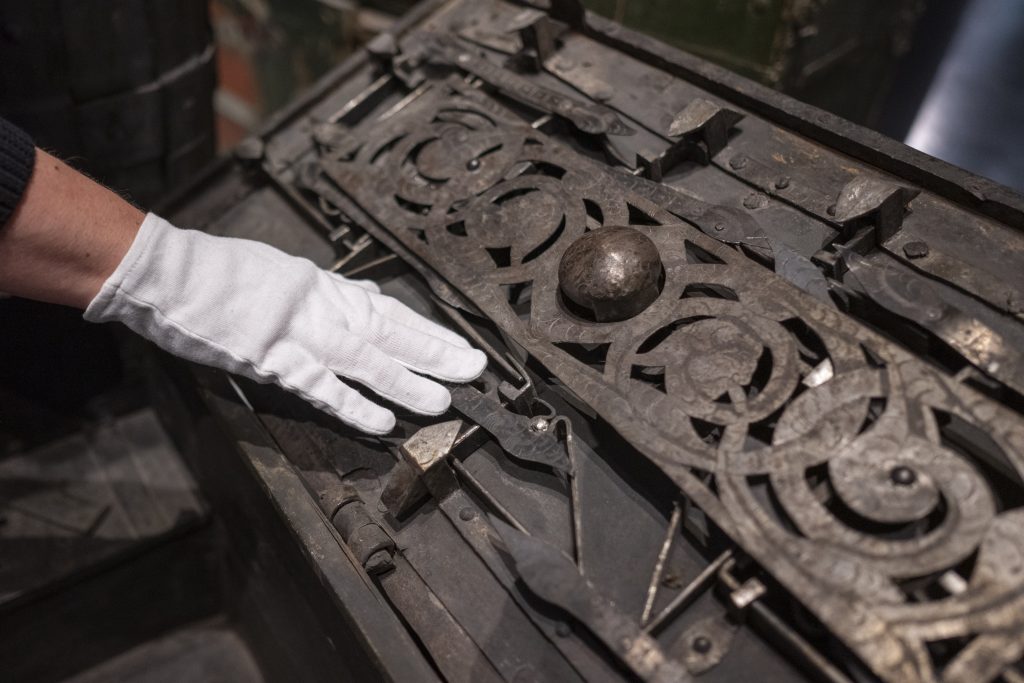
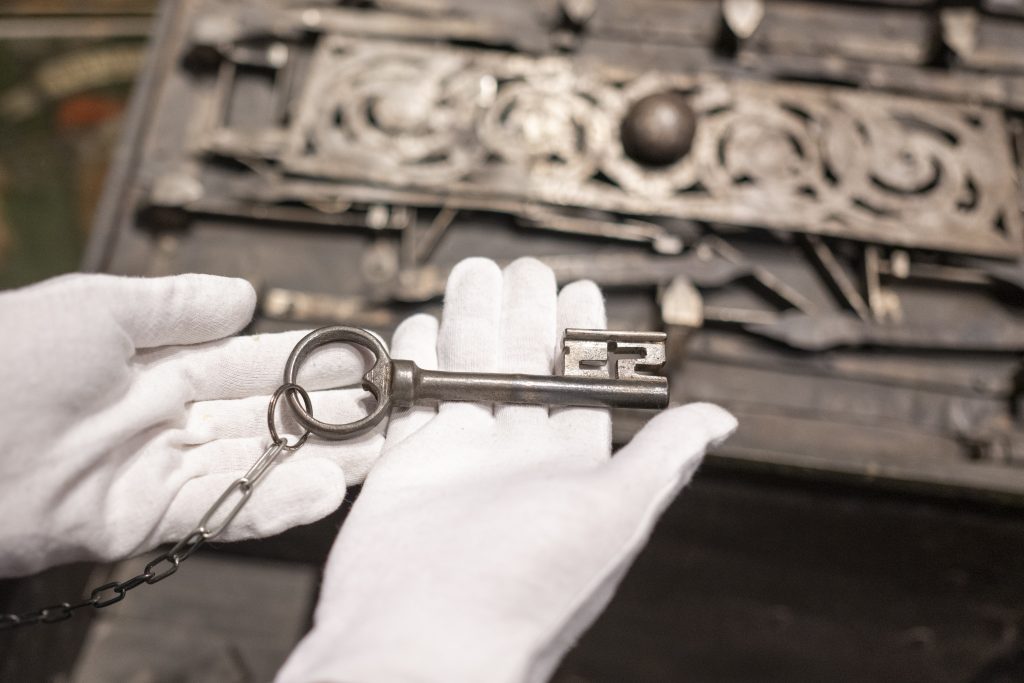
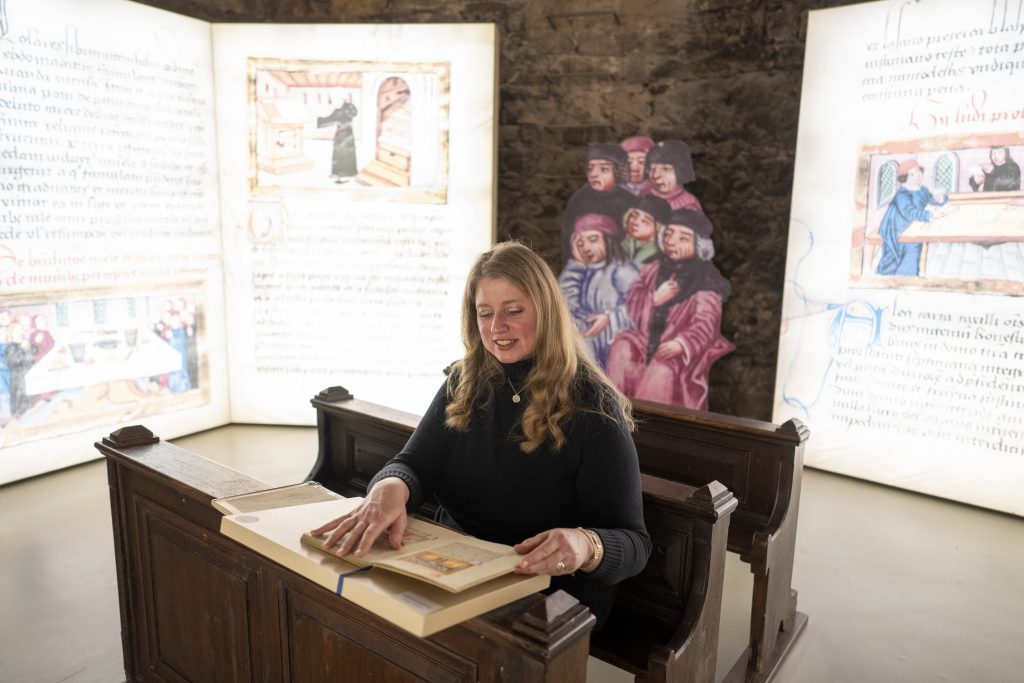
Museum objects to touch include the lock and key of a chest that was initially used to transport important documents and later used as a filing cabinet (top left and center). The carved names on the bricks date back to a time in the 20th century when the basement of the Uniseum was used as a party room (top right). You can physically experience what studying in the Middle Ages felt like on replica benches (bottom). Photos: Patrick Seeger.
Brandenburg completed her Master’s degree in 2023. Her experiences from the guided tours and her research were helpful for her master’s thesis. She focussed on the painting “Isenheim Altarpiece” by Matthias Grünewald and showed that it is possible to use it to convey theoretical art historical considerations about light to people with visual impairments. Among other things, she travelled to Colmar with a visually impaired man to see the altar. “In general, the big credo in the area of inclusion is: Not for us without us. Both the guided tours and the research into them only work in dialogue with those affected. That’s how we move forward together,” says Brandenburg.
Further contact information
The guided tours for visually impaired and blind people in the Uniseum take place monthly, the current dates are listed here. Individual appointments are also possible. To register and for further information, please contact the Uniseum by e-mail or by telephone at 0761 / 203 3835.
